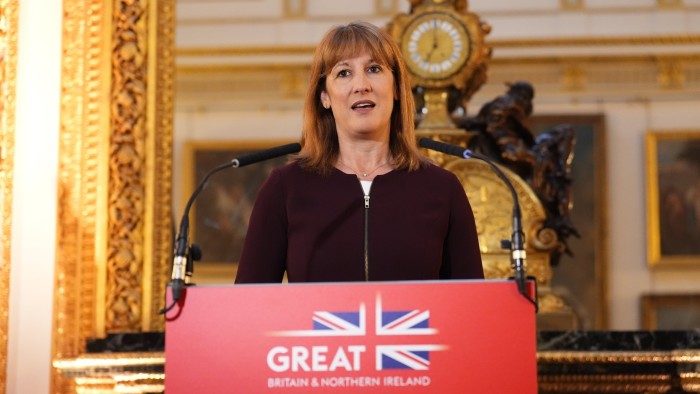Unlock the Editor’s Digest for free
Roula Khalaf, Editor of the FT, selects her favourite stories in this weekly newsletter.
The UK government borrowed £83.8bn in the first five months of the fiscal year, the highest total since the onset of the pandemic, laying bare chancellor Rachel Reeves’ challenge in November’s high-stakes Budget.
The shortfall between government spending and income was well above the £72.4bn forecast for the April to August period by the Office for Budget Responsibility, the UK’s fiscal watchdog.
Friday’s figures from the Office for National Statistics showed the government borrowed £18bn in August, as higher spending on public services and debt interest costs outstripped an increase in tax receipts. The OBR had forecast a shortfall of £12.5bn for the month.
Economists said the deterioration in the public finances meant it was almost certain that Reeves would be forced to raise taxes further in the Budget on November 26, after announcing £40bn worth of increases in her first Budget last October.
The chancellor needs to plug a fiscal hole that some economists have estimated at more than £20bn to keep to the government’s key fiscal rule, which requires day-to-day spending to be funded entirely through tax revenues by 2029-30, and to restore her fiscal headroom.
Paul Dales, an economist at Capital Economics, said that, based on the latest data, the government would have to raise £28bn in the Budget, mostly through taxes.
The government’s effort to reduce public spending has faced a backlash from Labour MPs, with retreats on cuts to welfare and winter fuel payments.
In a sign of the mounting difficulties facing Reeves, the chancellor was privately warned by the OBR that it was likely to downgrade its productivity forecasts ahead of the Budget, increasing the prospect of her having to raise taxes again, the Financial Times reported this week.
Responding to the borrowing figures, James Murray, chief secretary to the Treasury, said: “This Government has a plan to bring down borrowing because taxpayer money should be spent on the country’s priorities, not on debt interest.”
Mel Stride, the shadow chancellor, hit out at the Labour government’s management of the economy, accusing it of being “too weak and distracted to take the action needed to reduce the deficit”.

In August, government spending rose by £8.2bn, or 9.2 per cent, compared with the same month last year, as public sector pay and the cost of providing public services rose, the ONS said. Debt interest costs climbed by £1.9bn to £8.4bn.
Following Friday’s figures, UK borrowing costs rose, with the yield on the 10-year gilt up 0.03 percentage points at 4.72 per cent. The pound slipped 0.4 per cent against the dollar to $1.349.
Martin Beck, chief Economist at the consultancy WPI Strategy, said that if the pace of borrowing were maintained for the full fiscal year, the shortfall would exceed the OBR forecast by almost £20bn. That would, he added, “tax rises in November look inevitable”.
Separate data published by the ONS on Friday showed that th British retail sales fell 0.1 per cent in the three months to August compared with the previous three months, driven by lower purchases in tech stores, fuel stations and action houses. This was despite a 0.5 per cent rise in August, helped by the good weather.
.
